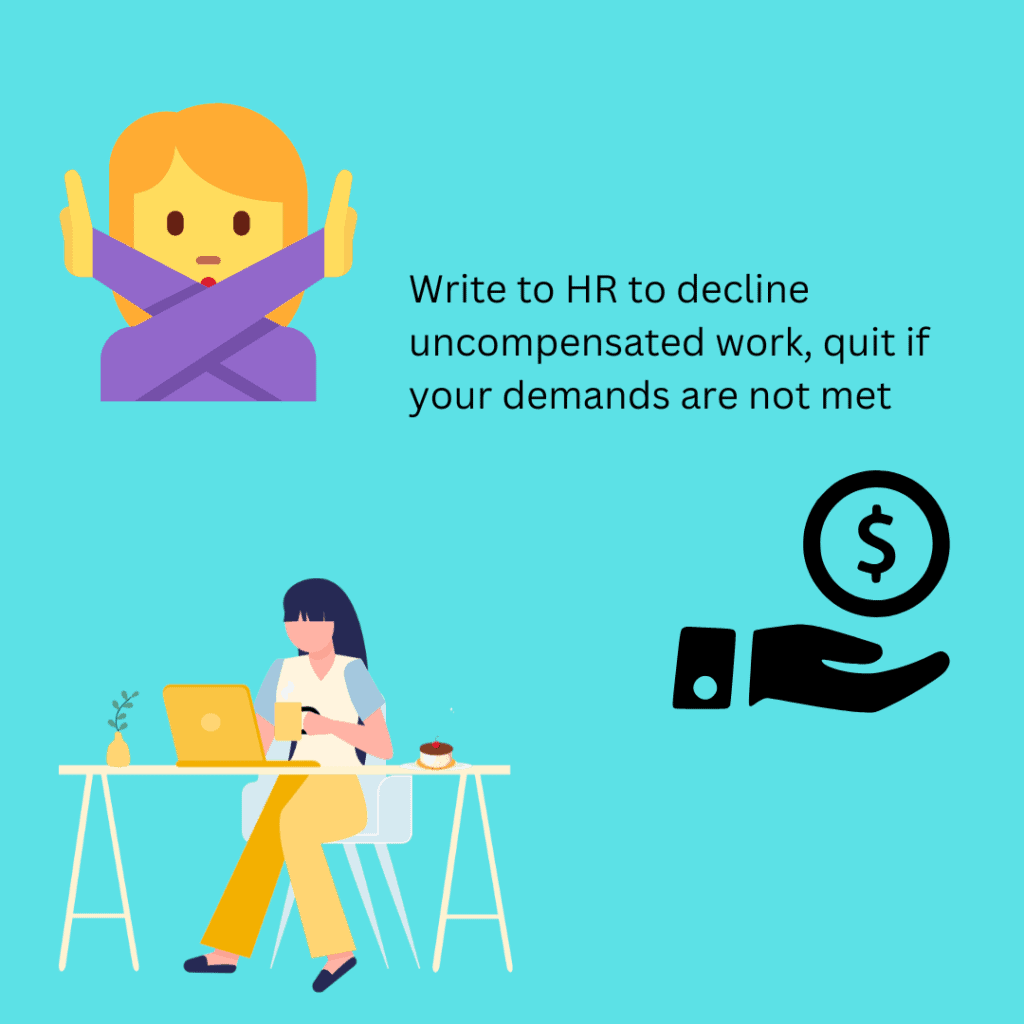What Is A Promotion? What Comes With A Promotion?
At work, promotion refers to advancement in position and job description compared to the one you are currently holding.
When you get promoted, you should expect to earn more because of the pay rise, and also work on more responsibilities because of now taking a more senior position. You hence automatically require compensation for the extra work you are taking.
The following is what happens when you get a promotion;
- You get a high position/role in office and a title change
- A salary increment/pay rise/more money
- Other related benefits – you might get allowances and benefits like house allowance, car allowance, health insurance
- More workload/duties – you will more responsibilities and work to do
- More workforce/team – you will be in charge of more divisions, employees, or teams
Given the added scope of work, do not be happy about a dry promotion that does not come with these changes and benefits. You should demand for the related raise.
Should i be Compensated for Additional Workload?
Generally when one has to take on more work responsibilities or promotion, it should be accompanied by compensation. When you are taking more tasks and duties than before, you should expect that to be accompanied by a pay rise and change in title.
An employer should not ask to promote you or take in more roles without compensating you for the added work load. If this happens, you should refuse taking it.
When your employer adds more duties to you, with or without a title but you are still working on the same pay it is called a dry promotion. A dry promotion is whereby there is no compensation for the duties that the new position comes with.
The employer should compensate or make up the difference with a salary review and proportionate raise. If you are working with more responsibilities at work on the same pay, it is not right and you need to ask for salary increment.
If you are being compensated or getting a pay rise, you can consider taking the additional roles even if it does not come with a title change. Even when taking this, consider the comparison of the additional roles you are taking on and the pay rise.
Should I Accept More Responsibilities/Promotion Without Pay Rise
More roles or responsibilities should come with compensation. Salary must increase with promotion or added roles. Do not accept taking on more roles or responsibilities if there is no pay rise and/or related benefits.
The main reasons why you should not accept a promotion or additional workload that is not accompanied by a salary increment include;
- Accepting extra work with no extra pay, means you will be overworked and underpaid
- It may not stop and you will find that in the future your employer will keep adding more and more responsibilities without paying or compensating you.
- It leads to resentment and makes you hate your job-you cannot be happy about a promotion that is not being compensated.
- Being unhappy at this job will negatively affect your performance and productivity
The best time to reject or decline the uncompensated workload from your employer is immediately. As soon as you are added work that you know is not part of your job description, you must act immediately. The longer you wait to see what happens or if you will get compensated, the harder it will be for you to get out of the situation.
You should not work in new higher position with increased responsibility without a raise for even a month or trial period. Some employers will bait employees that they need to see if they can work well in the new role before promoting or raising their pay.
While this is possible you have to understand that this can turn out to be a bluff and you are stuck with loads of work and no compensation after all. Your boss will just keep adding you more and more responsibilities.
The only time you should take on extra responsibility and no pay raise or titles is if it is exposing you to new experiences that would be valuable for you in another role. For instance, many companies only hire people as managers who have previously been managers.
In such a case you have a better go at a higher position in another job after you leave. If that is the situation, take the role and immediately plan to leverage it for future job hunting.
What to Do if Added More Workload with Same Pay
If your employer is promoting you or adding more work duties to you without adding you more pay, here are the options that you have
- Politely decline the promotion- you cannot be forced to accept a promotion
- Demand for pay rise- Negotiate for a salary review in consideration of the new added roles and ask for compensation
- Quit your job- if you are not in a position to take either of the above two options, then you should just quit but avoid accepting more work if you are not getting compensated for them.
Read: How to Set and Reinforce Boundaries at Work
Option1: Decline Uncompensated Work
When you are added more uncompensated workload, you have the option of declining this. You can write an email to your HR or manager detailing your rejection of the additional responsibilities you have been given. You can state the reason as being that the extra work responsibilities are not part of the current job description.
Therefore you feel your terms of engagement such as title and/or pay should be revised to reflect these changes. Consider that the outcome of this communication can go either way. The company may now be willing to negotiate with you on how they can compensate you for the new additional work.
On the other hand, your old work and role may be retained as before. In either case, you will not be overworked and underpaid. You will only be getting the right compensation for the work and the value that you are giving the company.

Option 2. Demand/ Negotiate for Pay Rise
You are right to demand for compensation of additional work that you are doing. If you find that your employer has added more duties to you, you have valid grounds to demand for a salary increase.
You can successfully negotiate for a salary increase that matches the added workload by following these simple tips;
- Refer to your terms of engagement – What do they say about taking more roles? If it does not explicitly state that you are obliged to take on more roles, then you have a case
- Refer to your job description to make your case- What are your roles , duties and job description as stated in your agreement? What are the additional tasks that you are being asked to do? You need to list out these duties.
- Illustrate to your manager or employer why what you are doing now is not part of your current position.
- Negotiate for a salary increment and other benefits that match this change in roles brought about by the promotion.
How much more raise you can get from a promotion depends on many factors. Mainly it depends on how much more roles you are taking and the level of qualifications needed. You should hence aim for a high rise if the added duties are substantial.
Consider all the necessary time and commitment required and request for the highest reasonable raise you can get. About 20%- 30% salary increase for a promotion is considered a decent raise to compensate for the new roles.
However getting what you want requires some basic negotiation skills. You have to sell yourself since few employers will offer it willingly. By pushing for compensation (pay rise) your employer will have to make a decision either to meet your demands or take off the added roles and responsibilities.
Companies generally don’t really volunteer raises. They give you the minimum that they think keeps you content. So if you don’t express that you want more, they’re not going to give you. At all times ensure that your salary matches the responsibilities that you are undertaking.
Your employer cannot force you to take on more responsibility. Standing your ground and communicating your expectations when you are added work outside your description is the right thing to do. If your company were to hire someone for the job they want you to do, they would pay them accordingly, so demand the same.
Read: How to Successfully Ask for a Pay Rise
Option 3. Resign/ Quit your Job
One way of dealing with increased uncompensated workloads is by getting out of them. You have the right to say no to extra workload that is not compensated. You cannot be forced to work under this arrangement against your will. Therefore if your manager is not willing to accommodate you by compensating the new roles, then quit the job.
You will find a new job where the actual workload is compensated and matched by title and compensation. It is better to leave a job you feel the roles you are doing are not compensated than feel resentment later.
Working with more responsibility at the same pay will make you resentful. You would rather refuse to take on more work without a raise and quit that job than do work that you hate.
4. Set and Reinforce Work Boundaries
Having work boundaries is very important to ensure that you are not overloaded with work. Some employers will keep adding you more and more work roles informally. If you are not keen, you may take on more and more workload that is not being compensated or accompanied by a promotion.
To reject such additional or extra responsibilities that are not part of a promotion or pay rise, set and reinforce work boundaries. Only work on the set terms that you agreed to during engagement.
Be guided by the job description that was part of the terms of engagement when you were hired into your current position. Insist that anything else should result in a discussion for changes in terms such as compensation. Also refuse to work overtime or during holidays to compensate on other people’s work.
By setting and reinforcing work boundaries you are communicating to your manager or employer that you will not take on more roles & responsibilities that are not compensated.



